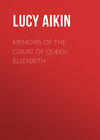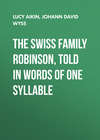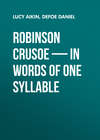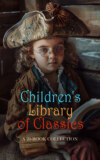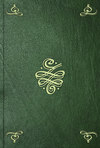Buch lesen: «Memoirs of the Court of Queen Elizabeth»
PREFACE
In the literature of our country, however copious, the eye of the curious student may still detect important deficiencies.
We possess, for example, many and excellent histories, embracing every period of our domestic annals;—biographies, general and particular, which appear to have placed on record the name of every private individual justly entitled to such commemoration;—and numerous and extensive collections of original letters, state-papers and other historical and antiquarian documents;—whilst our comparative penury is remarkable in royal lives, in court histories, and especially in that class which forms the glory of French literature,—memoir.
To supply in some degree this want, as it affects the person and reign of one of the most illustrious of female and of European sovereigns, is the intention of the work now offered with much diffidence to the public.
Its plan comprehends a detailed view of the private life of Elizabeth from the period of her birth; a view of the domestic history of her reign; memoirs of the principal families of the nobility and biographical anecdotes of the celebrated characters who composed her court; besides notices of the manners, opinions and literature of the reign.
Such persons as may have made it their business or their entertainment to study very much in detail the history of the age of Elizabeth, will doubtless be aware that in the voluminous collections of Strype, in the edited Burleigh, Sidney, and Talbot papers, in the Memoirs of Birch, in various collections of letters, in the chronicles of the times,—so valuable for those vivid pictures of manners which the pen of a contemporary unconsciously traces,—in the Annals of Camden, the Progresses of Nichols, and other large and laborious works which it would be tedious here to enumerate, a vast repertory existed of curious and interesting facts seldom recurred to for the composition of books of lighter literature, and possessing with respect to a great majority of readers the grace of novelty. Of these and similar works of reference, as well as of a variety of others, treating directly or indirectly on the biography, the literature, and the manners of the period, a large collection has been placed under the eyes of the author, partly by the liberality of her publishers, partly by the kindness of friends.
In availing herself of their contents, she has had to encounter in full force the difficulties attendant on such a task; those of weighing and comparing authorities, of reconciling discordant statements, of bringing insulated facts to bear upon each other, and of forming out of materials irregular in their nature and abundant almost to excess, a compact and well-proportioned structure.
How far her abilities and her diligence may have proved themselves adequate to the undertaking, it remains with a candid public to decide. Respecting the selection of topics it seems necessary however to remark, that it has been the constant endeavour of the writer to preserve to her work the genuine character of Memoirs, by avoiding as much as possible all encroachments on the peculiar province of history;—that amusement, of a not illiberal kind, has been consulted at least equally with instruction:—and that on subjects of graver moment, a correct sketch has alone been attempted.
By a still more extensive course of reading and research, an additional store of anecdotes and observations might unquestionably have been amassed; but it is hoped that of those assembled in the following pages, few will be found to rest on dubious or inadequate authority; and that a copious choice of materials, relatively to the intended compass of the work, will appear to have superseded the temptation to useless digression, or to prolix and trivial detail.
The orthography of all extracts from the elder writers has been modernized, and their punctuation rendered more distinct; in other respects reliance may be placed on their entire fidelity.
Volume I
CHAPTER I
1533 TO 1536
Birth of Elizabeth.—Circumstances attending the marriage of her parents.—Public entry of Anne Boleyn into London.—Pageants exhibited.—Baptism of Elizabeth.—Eminent persons present.—Proposal of marriage between Elizabeth and a French prince.—Progress of the reformation.—Henry persecutes both parties.—Death of Catherine of Arragon.—Disgrace of Anne Boleyn.—Her death.—Confesses an obstacle to her marriage.—Particulars on this subject.—Elizabeth declared illegitimate.—Letter of lady Bryan respecting her.—The king marries Jane Seymour.
On the 7th of September 1533, at the royal palace of Greenwich in Kent, was born, under circumstances as peculiar as her after-life proved eventful and illustrious, Elizabeth daughter of king Henry VIII. and his queen Anne Boleyn.
Delays and difficulties equally grievous to the impetuous temper of the man and the despotic habits of the prince, had for years obstructed Henry in the execution of his favourite project of repudiating, on the plea of their too near alliance, a wife who had ceased to find favor in his sight, and substituting on her throne the youthful beauty who had captivated his imagination. At length his passion and his impatience had arrived at a pitch capable of bearing down every obstacle. With that contempt of decorum which he displayed so remarkably in some former, and many later transactions of his life, he caused his private marriage with Anne Boleyn to precede the sentence of divorce which he had resolved that his clergy should pronounce against Catherine of Arragon; and no sooner had this judicial ceremony taken place, than the new queen was openly exhibited as such in the face of the court and the nation.
An unusual ostentation of magnificence appears to have attended the celebration of these august nuptials. The fondness of the king for pomp and pageantry was at all times excessive, and on this occasion his love and his pride would equally conspire to prompt an extraordinary display. Anne, too, a vain, ambitious, and light-minded woman, was probably greedy of this kind of homage from her princely lover; and the very consciousness of the dubious, inauspicious, or disgraceful circumstances attending their union, might secretly augment the anxiety of the royal pair to dazzle and impose by the magnificence of their public appearance. Only once before, since the Norman conquest, had a king of England stooped from his dignity to elevate a private gentlewoman and a subject to a partnership of his bed and throne; and the bitter animosities between the queen's relations on one side, and the princes of the blood and great nobles on the other, which had agitated the reign of Edward IV., and contributed to bring destruction on the heads of his helpless orphans, stood as a strong warning against a repetition of the experiment.
The unblemished reputation and amiable character of Henry's "some-time wife," had long procured for her the love and respect of the people; her late misfortunes had engaged their sympathy, and it might be feared that several unfavorable points of comparison would suggest themselves between the high-born and high-minded Catherine and her present rival—once her humble attendant—whose long-known favor with the king, whose open association with him at Calais, whither she had attended him, whose private marriage of uncertain date, and already advanced pregnancy, afforded so much ground for whispered censures.
On the other hand, the personal qualities of the king gave him great power over popular opinion. The manly beauty of his countenance, the strength and agility which in the chivalrous exercises of the time rendered him victorious over all competitors; the splendor with which he surrounded himself; his bounty; the popular frankness of his manners, all conspired to render him, at this period of his life, an object of admiration rather than of dread to his subjects; while the respect entertained for his talents and learning, and for the conscientious scruples respecting his first marriage which he felt or feigned, mingled so much of deference in their feelings towards him, as to check all hasty censures of his conduct. The protestant party, now considerable by zeal and numbers, foresaw too many happy results to their cause from the circumstances of his present union, to scrutinize with severity the motives which had produced it. The nation at large, justly dreading a disputed succession, with all its long-experienced evils, in the event of Henry's leaving behind him no offspring but a daughter whom he had lately set aside on the ground of illegitimacy, rejoiced in the prospect of a male heir to the crown. The populace of London, captivated, as usual, by the splendors of a coronation, were also delighted with the youth, beauty, and affability of the new queen.
The solemn entry therefore of Anne into the city of London was greeted by the applause of the multitude; and it was probably the genuine voice of public feeling, which, in saluting her queen of England, wished her, how much in vain! a long and prosperous life.
The pageants displayed in the streets of London on this joyful occasion, are described with much minuteness by our chroniclers, and afford ample indications that the barbarism of taste which permitted an incongruous mixture of classical mythology with scriptural allusions, was at its height in the learned reign of our eighth Henry. Helicon and Mount Parnassus appeared on one side; St. Anne, and Mary the wife of Cleophas with her children, were represented on the other. Here the three Graces presented the queen with a golden apple by the hands of their orator Mercury; there the four cardinal Virtues promised, in set speeches, that they would always be aiding and comforting to her.
On the Sunday after her public entry, a day not at this period regarded as improper for the performance of such a ceremonial, Henry caused his queen to be crowned at Westminster with great solemnity; an honor which he never thought proper to confer on any of her successors.
In the sex of the child born to them a few months afterwards, the hopes of the royal pair must doubtless have sustained a severe disappointment: but of this sentiment nothing was suffered to appear in the treatment of the infant, whom her father was anxious to mark out as his only legitimate offspring and undoubted heir to the crown.
She was destined to bear the auspicious name of Elizabeth, in memory of her grandmother, that heiress of the house of York whose marriage with the earl of Richmond, then Henry VII., had united the roses, and given lasting peace to a country so long rent by civil discord. The unfortunate Mary, now in her sixteenth year, was stripped of the title of princess of Wales, which she had borne from her childhood, that it might adorn a younger sister; one too whose birth her interest, her religion, and her filial affection for an injured mother, alike taught her to regard as base and infamous.
A public and princely christening served still further to attest the importance attached to this new member of the royal family.
By the king's special command, Cranmer archbishop of Canterbury stood godfather to the princess; and Shakespeare, by a fiction equally poetical and courtly, has represented him as breaking forth on this memorable occasion into an animated vaticination of the glories of the "maiden reign." Happy was it for the peace of mind of the noble personages there assembled, that no prophet was empowered at the same time to declare how few of them should live to share its splendors; how awfully large a proportion of their number should fall, or behold their nearest connexions falling, untimely victims of the jealous tyranny of Henry himself, or of the convulsions and persecutions of the two troubled reigns destined to intervene before those halcyon days which they were taught to anticipate!
For the purpose of illustrating the truth of this remark, and at the same time of introducing to the reader the most distinguished personages of Henry's court, several of whom will afterwards be found exerting different degrees of influence on the character or fortunes of the illustrious subject of this work, it may be worth while to enumerate in regular order the performers in this august ceremonial. The circumstantial Holinshed, to whom we are indebted for their names and offices, will at the same time furnish some of those minute particulars which serve to bring the whole pompous scene before the eye of fancy.
Early in the afternoon, the lord-mayor and corporation of London, who had been summoned to attend, took boat for Greenwich, where they found many lords, knights, and gentlemen assembled. The whole way from the palace to the friery was strown with green rushes, and the walls were hung with tapestry, as was the Friers' church in which the ceremony was performed.
A silver font with a crimson canopy was placed in the middle of the church; and the child being brought into the hall, the long procession set forward. It began with citizens walking two-and-two, and ended with barons, bishops, and earls. Then came, bearing the gilt basins, Henry earl of Essex, the last of the ancient name of Bourchier who bore the title. He was a splendid nobleman, distinguished in the martial games and gorgeous pageantries which then amused the court: he also boasted of a royal lineage, being sprung from Thomas of Woodstock, youngest son of Edward III.; and perhaps he was apprehensive lest this distinction might hereafter become as fatal to himself as it had lately proved to the unfortunate duke of Buckingham. But he perished a few years after by a fall from his horse; and leaving no male issue, the king, to the disgust of this great family, conferred the title on the low-bred Cromwel, then his favorite minister.
The salt was borne by Henry marquis of Dorset, the unfortunate father of lady Jane Grey; who, after receiving the royal pardon for his share in the criminal plot for setting the crown on the head of his daughter, again took up arms in the rebellion of Wyat, and was brought to expiate this treason on the scaffold.
William Courtney marquis of Exeter followed with the taper of virgin wax; a nobleman who had the misfortune to be very nearly allied to the English throne; his mother being a daughter of Edward IV. He was at this time in high favor with the king his cousin, who, after setting aside his daughter Mary, had even declared him heir-apparent, to the prejudice of his own sisters: but three years after he fell a victim to the jealousy of the king, on a charge of corresponding with his proscribed kinsman cardinal Pole: his honors and estates were forfeited; and his son, though still a child, was detained in close custody.
The chrism was borne by lady Mary Howard, the beautiful daughter of the duke of Norfolk; who lived not only to behold, but, by the evidence which she gave on his trial, to assist in the most unmerited condemnation of her brother, the gallant and accomplished earl of Surry. The king, by a trait of royal arrogance, selected this lady, descended from our Saxon monarchs and allied to all the first nobility, for the wife of his base-born son created duke of Richmond; but it does not appear that the spirit of the Howards was high enough in this reign to feel the insult as it deserved.
The royal infant, wrapped in a mantle of purple velvet, having a long train furred with ermine, was carried by one of her godmothers, the dowager-duchess of Norfolk. Anne Boleyn was this lady's step-grand-daughter: but in this alliance with royalty she had little cause to exult; still less in the closer one which was afterwards formed for her by the elevation of her own grand-daughter Catherine Howard. On discovery of the ill conduct of this queen, the aged duchess was overwhelmed with disgrace; she was even declared guilty of misprision of treason, and committed to custody, but was released by the king after the blood of Catherine and her paramours had quenched his fury.
The dowager-marchioness of Dorset was the other godmother at the font:—of the four sons of this lady, three perished on the scaffold; her grand-daughter lady Jane Grey shared the same fate; and the surviving son died a prisoner during the reign of Elizabeth, for the offence of distributing a pamphlet asserting the title of the Suffolk line to the crown.
The marchioness of Exeter was the godmother at the confirmation, who had not only the affliction to see her husband brought to an untimely end, and her only son wasting his youth in captivity, but, being herself attainted of high treason some time afterwards, underwent a long and arbitrary imprisonment.
On either hand of the duchess of Norfolk walked the dukes of Norfolk and Suffolk, the only nobles of that rank then existing in England.
Their names occur in conjunction on every public occasion, and in almost every important transaction, civil and military, of the reign of Henry VIII., but the termination of their respective careers was strongly contrasted. The duke of Suffolk had the extraordinary good fortune never to lose that favor with his master which he had gained as Charles Brandon, the partner of his youthful pleasures. What was a still more extraordinary instance of felicity, his marriage with the king's sister brought to him neither misfortunes nor perils, and he did not live to witness those which overtook his grand-daughters. He died in peace, lamented by a sovereign who knew his worth.
The duke of Norfolk, on the contrary, was powerful enough by birth and connexions to impress Henry with fears for the tranquillity of his son's reign. The memory of former services was sacrificed to present alarm. Almost with his last breath he ordered his old and faithful servant to the scaffold; but even Henry was no longer absolute on his death-bed. For once he was disobeyed, and Norfolk survived him; but the long years of his succeeding captivity were poorly compensated by a brief and tardy restoration to liberty and honors under Mary.
One of the child's train-bearers was the countess of Kent. This was probably the widow of the second earl of that title and of the name of Grey: she must therefore have been the daughter of the earl of Pembroke, a zealous Yorkist who was slain fighting in the cause of Edward IV. Henry VIII. was doubtless aware that his best hereditary title to the crown was derived from his mother, and during his reign the Yorkist families enjoyed at least an equal share of favor with the Lancastrians, whom his father had almost exclusively countenanced.
Thomas Boleyn earl of Wiltshire, the proud and happy grandfather of the princely infant, supported the train on one side. It is not true that he afterwards, in his capacity of a privy councillor, pronounced sentence of death on his own son and daughter; even Henry was not inhuman enough to exact this of him; but he lived to witness their cruel and disgraceful end, and died long before the prosperous days of his illustrious grandchild.
On the other side the train was borne by Edward Stanley third earl of Derby. This young nobleman had been a ward of Wolsey, and was carefully educated by that splendid patron of learning in his house and under his own eye. He proved himself a faithful and loyal subject to four successive sovereigns; stood unshaken by the tempests of the most turbulent times; and died full of days in the possession of great riches, high hereditary honors, and universal esteem, in 1574.
A splendid canopy was supported over the infant by four lords, three of them destined to disastrous fates. One was her uncle, the elegant, accomplished, viscount Rochford, whom the impartial suffrage of posterity has fully acquitted of the odious crime for which he suffered by the mandate of a jealous tyrant.
Another was lord Hussey; whom a rash rebellion brought to the scaffold a few years afterwards. The two others were brothers of that illustrious family of Howard, which furnished in this age alone more subjects for tragedy than "Thebes or Pelops' line" of old. Lord William, uncle to Catherine Howard, was arbitrarily adjudged to perpetual imprisonment and forfeiture of goods for concealing her misconduct; but Henry was pleased soon after to remit the sentence: he lived to be eminent in the state under the title of lord Howard of Effingham, and died peacefully in a good old age. Lord Thomas suffered by the ambition so frequent in his house, of matching with the blood royal. He formed a secret marriage with the lady Margaret Douglas, niece to the king; on discovery of which, he was committed to a close imprisonment, whence he was only released by death.
After the ceremony of baptism had been performed by Stokesly bishop of London, a solemn benediction was pronounced upon the future queen by Cranmer, that learned and distinguished prelate, who may indeed be reproached with some too courtly condescensions to the will of an imperious master, and what is worse, with several cruel acts of religious persecution; but whose virtues were many, whose general character was mild and benevolent, and whose errors and weaknesses were finally expiated by the flames of martyrdom.
In the return from church, the gifts of the sponsors, consisting of cups and bowls, some gilded, and others of massy gold, were carried by four persons of quality: Henry Somerset second earl of Worcester, whose father, notwithstanding his illegitimacy, had been acknowledged as a kinsman by Henry VII., and advanced to the peerage; lord Thomas Howard the younger, a son of the duke of Norfolk who was restored in blood after his father's attainder, and created lord Howard of Bindon; Thomas Ratcliffe lord Fitzwalter, afterwards earl of Sussex; and sir John Dudley, son of the detested associate of Empson, and afterwards the notorious duke of Northumberland, whose crimes received at length their due recompense in that ignominious death to which his guilty and extravagant projects had conducted so many comparatively innocent victims.
We are told, that on the same day and hour which gave birth to the princess Elizabeth, a son was born to this "bold bad man," who received the name of Robert, and was known in after-times as earl of Lei cester. It was believed by the superstition of the age, that this coincidence of their nativities produced a secret and invincible sympathy which secured to Dudley, during life, the affections of his sovereign lady. It may without superstition be admitted, that this circumstance, seizing on the romantic imagination of the princess, might produce a first impression, which Leicester's personal advantages, his insinuating manners, and consummate art of feigning, all contributed to render deep and permanent.
The personal history of Elizabeth may truly be said to begin with her birth; for she had scarcely entered her second year when her marriage—that never-accomplished project, which for half a century afterwards inspired so many vain hopes and was the subject of so many fruitless negotiations, was already proposed as an article of a treaty between France and England.
Henry had caused an act of succession to be passed, by which his divorce was confirmed, the authority of the pope disclaimed, and the crown settled on his issue by Anne Boleyn. But, as if half-repenting the boldness of his measures, he opened a negotiation almost immediately with Francis I., for the purpose of obtaining a declaration by that king and his nobility in favor of his present marriage, and the intercession of Francis for the revocation of the papal censures fulminated against him. And in consideration of these acts of friendship, he offered to engage the hand of Elizabeth to the duke d'Angoulême, third son of the French king. But Francis was unable to prevail upon the new pope to annul the acts of his predecessor; and probably not wishing to connect himself more closely with a prince already regarded as a heretic, he suffered the proposal of marriage to fall to the ground.
The doctrines of Zwingle and of Luther had at this time made considerable progress among Henry's subjects, and the great work of reformation was begun in England. Several smaller monasteries had been suppressed; the pope's supremacy was preached against by public authority; and the parliament, desirous of widening the breach between the king and the pontiff, declared the former, head of the English church. After some hesitation, Henry accepted the office, and wrote a book in defence of his conduct. The queen was attached, possibly by principle, and certainly by interest, to the antipapal party, which alone admitted the validity of the royal divorce, and consequently of her marriage; and she had already engaged her chaplain Dr. Parker, a learned and zealous reformist, to keep a watchful eye over the childhood of her daughter, and early to imbue her mind with the true principles of religious knowledge.
But Henry, whose passions and interests alone, not his theological convictions, had set him in opposition to the old church establishment, to the ceremonies and doctrines of which he was even zealously attached, began to be apprehensive that the whole fabric would be swept away by the strong tide of popular opinion which was now turned against it, and he hastened to interpose in its defence. He brought to the stake several persons who denied the real presence, as a terror to the reformers; whilst at the same time he showed his resolution to quell the adherents of popery, by causing bishop Fisher and sir Thomas More to be attainted of treason, for refusing such part of the oath of succession as implied the invalidity of the king's first marriage, and thus, in effect, disallowed the authority of the papal dispensation in virtue of which it had been celebrated.
Thus were opened those dismal scenes of religious persecution and political cruelty from which the mind of Elizabeth was to receive its early and indelible impressions.
The year 1536, which proved even more fertile than its predecessor in melancholy incidents and tragical catastrophes, opened with the death of Catherine of Arragon; an event equally welcome, in all probability, both to the sufferer herself, whom tedious years of trouble and mortification must have rendered weary of a world which had no longer a hope to flatter her; and to the ungenerous woman who still beheld her, discarded as she was, with the sentiments of an enemy and a rival. It is impossible to contemplate the life and character of this royal lady, without feelings of the deepest commiseration. As a wife, the bitter humiliations which she was doomed to undergo were entirely unmerited; for not only was her modesty unquestioned, but her whole conduct towards the king was a perfect model of conjugal love and duty. As a queen and a mother, her firmness, her dignity, and her tenderness, deserved a far other recompense than to see herself degraded, on the infamous plea of incest, from the rank of royalty, and her daughter, so long heiress to the English throne, branded with illegitimacy, and cast out alike from the inheritance and the affections of her father. But the memory of this unhappy princess has been embalmed by the genius of Shakespeare, in the noble drama of which he has made her the touching and majestic heroine; and let not the praise of magnanimity be denied to the daughter of Anne Boleyn, in permitting those wrongs and those sufferings which were the price of her glory, nay of her very existence, to be thus impressively offered to the compassion of her people.
Henry was moved to tears on reading the tender and pious letter addressed to him by the dying hand of Catherine; and he marked by several small but expressive acts, the respect, or rather the compunction, with which the recollection of her could not fail to inspire him. Anne Boleyn paid to the memory of the princess-dowager of Wales—such was the title now given to Catherine—the unmeaning compliment of putting on yellow mourning; the color assigned to queens by the fashion of France: but neither humanity nor discretion restrained her from open demonstrations of the satisfaction afforded her by the melancholy event.
Short was her unfeeling triumph. She brought into the world a few days afterwards, a dead son; and this second disappointment of his hopes completed that disgust to his queen which satiety, and perhaps also a growing passion for another object, was already beginning to produce in the mind of the king.
It is traditionally related, that at Jane Seymour's first coming to court, the queen, espying a jewel hung round her neck, wished to look at it; and struck with the young lady's reluctance to submit it to her inspection, snatched it from her with violence, when she found it to contain the king's picture, presented by himself to the wearer. From this day she dated her own decline in the affections of her husband, and the ascendancy of her rival. However this might be, it is certain that the king about this time began to regard the conduct of his once idolized Anne Boleyn with an altered eye. That easy gaiety of manner which he had once remarked with delight, as an indication of the innocence of her heart and the artlessness of her disposition, was now beheld by him as a culpable levity which offended his pride and alarmed his jealousy. His impetuous temper, with which "once to suspect was once to be resolved," disdained to investigate proofs or to fathom motives; a pretext alone was wanting to his rising fury, and this he was not long in finding.
On May-day, then observed at court as a high festival, solemn justs were held at Greenwich, before the king and queen, in which viscount Rochford, the queen's brother, was chief challenger, and Henry Norris principal defender. In the midst of the entertainment, the king suddenly rose and quitted the place in anger; but on what particular provocation is not certainly known. Saunders the Jesuit, the great calumniator of Anne Boleyn, says that it was on seeing his consort drop her handkerchief, which Norris picked up and wiped his face with. The queen immediately retired, and the next day was committed to custody. Her earnest entreaties to be permitted to see the king were disregarded, and she was sent to the Tower on a charge of treason and adultery.
